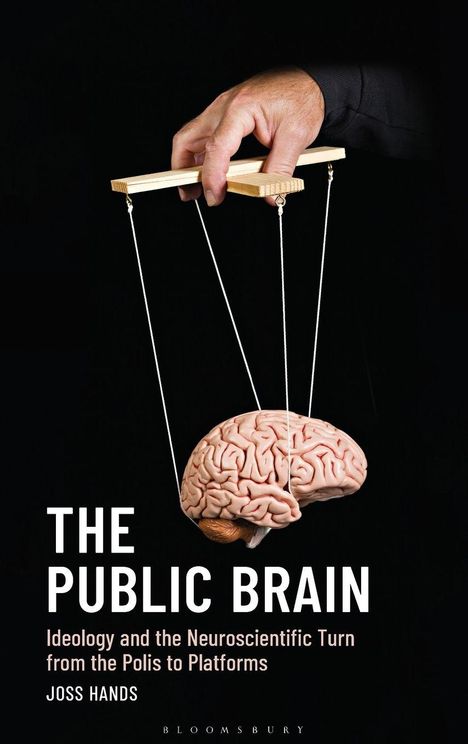Joss Hands: The Public Brain, Gebunden
The Public Brain
- Ideology and the Neuroscientific Turn from the Polis to Platforms
(soweit verfügbar beim Lieferanten)
- Verlag:
- Bloomsbury Academic, 10/2025
- Einband:
- Gebunden
- Sprache:
- Englisch
- ISBN-13:
- 9781786616043
- Artikelnummer:
- 12270790
- Umfang:
- 166 Seiten
- Gewicht:
- 454 g
- Maße:
- 229 x 152 mm
- Stärke:
- 25 mm
- Erscheinungstermin:
- 2.10.2025
- Hinweis
-
Achtung: Artikel ist nicht in deutscher Sprache!
Klappentext
Joss Hands connects the historic understanding of the brain with the history and politics and the democracy to address the current concerns about social media, democratic collapse and technological control. The Public Brain explores the way in which politics and the public sphere are understood in different societies and eras are explored in light of the dominant understanding of the brain in each era, in particular the use of the brain's capacities and character, to justify the dominant political ideology of the time. Moving from the birth of democracy through to the age of reason and revolution and on to the current social media era of 'nudge' politics and new forms of political extremism - the book traces the triangulation of brain, public and media. This includes and exploration of the role of social media platforms and their contribution to confusion and obfuscation in the current era. It proposes different formulations of the public brain over those eras to conclude by advocating for a democratic public brain. The book explores what has been largely overlooked in this field, unpicks this history in order to offer valuable insights into the debates over the contemporary condition across a range of issues such as neoliberalism, self-help and wellbeing as forms of ideology and control, the shift to extremist proto-fascist politics and of post-truth. The book unpacks arguments about affect and cognitive overload to make a positive case for the continuing power of reason and its emancipatory potential. In that way the book provides a valuable insight into how we have come to view the brain as we have, how that view is often misused, and offers suggestions of ways to marshal an enriched democratic concept of the public brain for positive social change.


